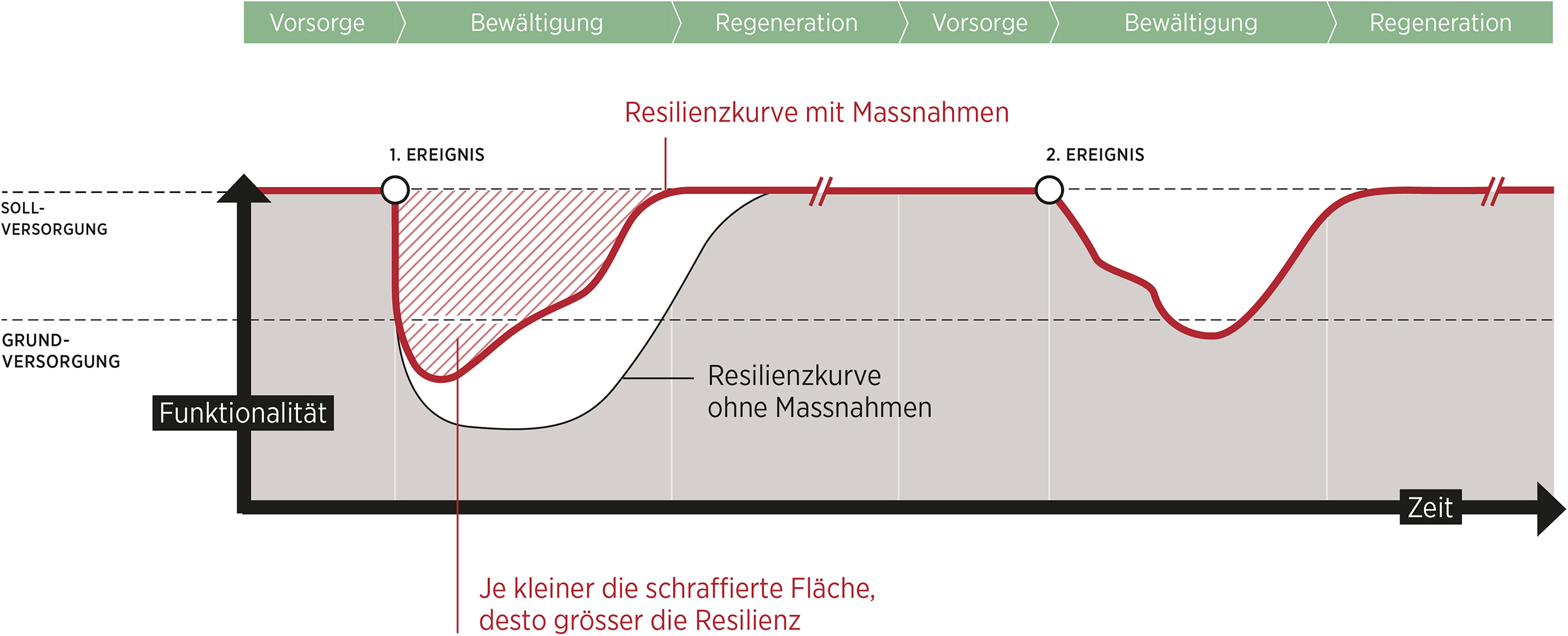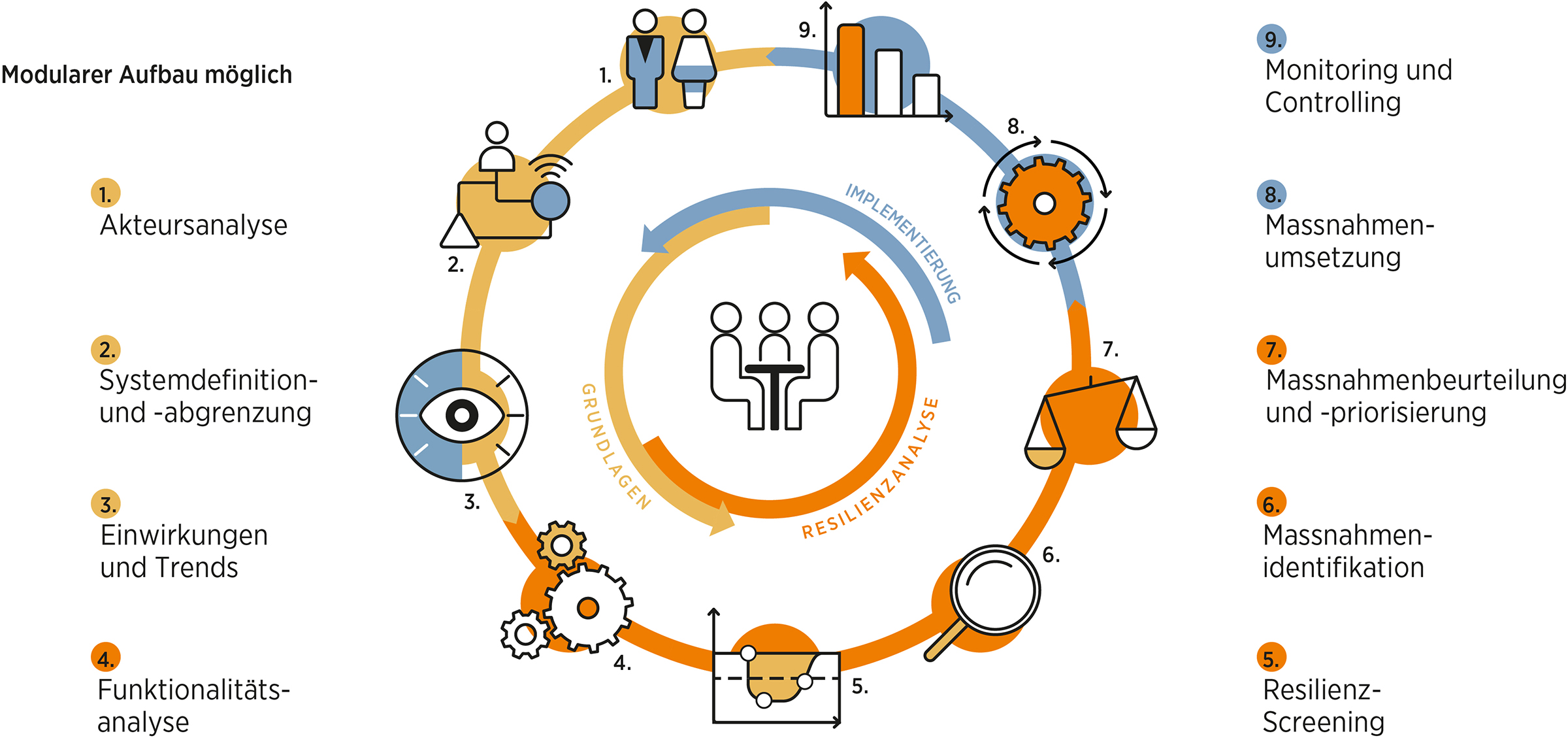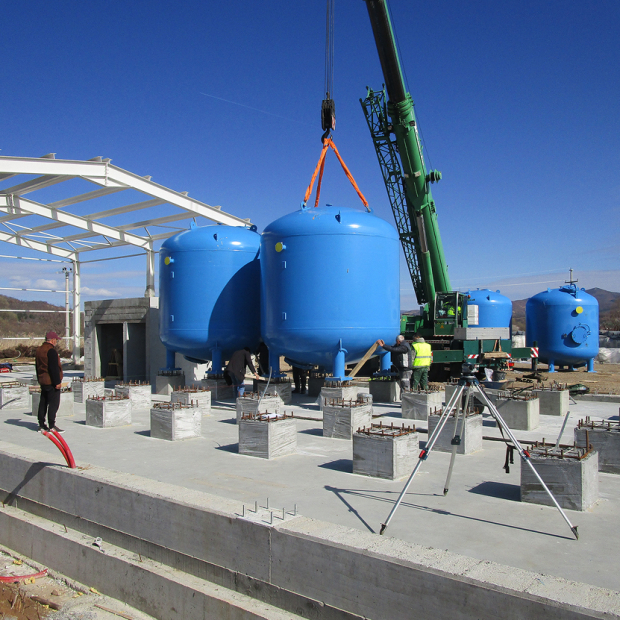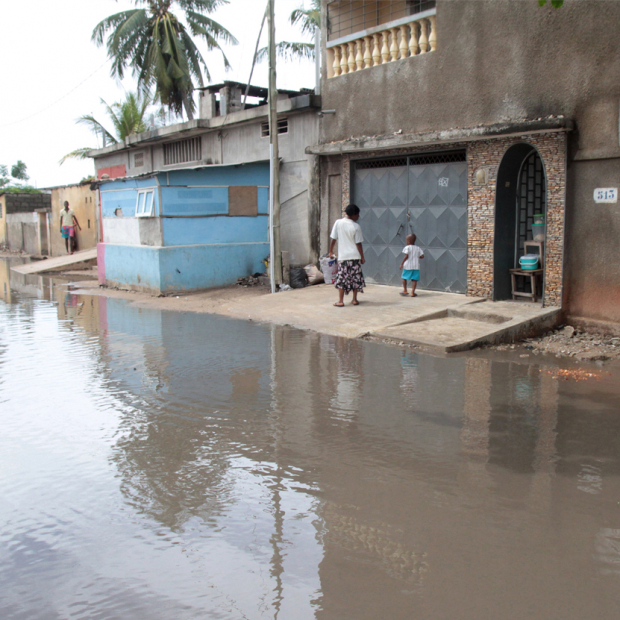
Resilience (Water)
Resilience is the capacity of a system to prepare for, resist, cope with and quickly recover from disruptive events – and with each recovery to adapt with increasing success. Resilient systems also ensure a minimal level of functionality during disruptive events.
We advise cities, municipalities, companies, and infrastructure operators on resilience management. Together with our clients, we develop cost-effective measures to improve their resistance and adaptability.
Disruptive events come in the form of acute shocks and chronic stresses owing to human, technological, and naturally occurring causes.

Our approach to resilience management involves working together with the relevant stakeholders to gather, structure and analyze the data and information necessary for effective resilience analysis (steps 1 to 5). We then identify, prioritize, and implement measures (steps 6 to 8), and follow up by monitoring those measures (step 9).

From analysis to implementation and monitoring of measures
In the context of our resilience management services, we work together with our clients to answer the following questions:
- How resilient is your city, municipality, company, or infrastructure to acute shocks and chronic stresses?
- What kinds of acute shocks and chronic stresses might threaten your resilience in the future?
- What minimal degree of functionality does your city, municipality, company, or infrastructure need to retain to ensure basic operability?
- What measures would be appropriate to increase the resilience of your city, municipality, company, or infrastructure?
Projects for Topic Resilience (Water)












